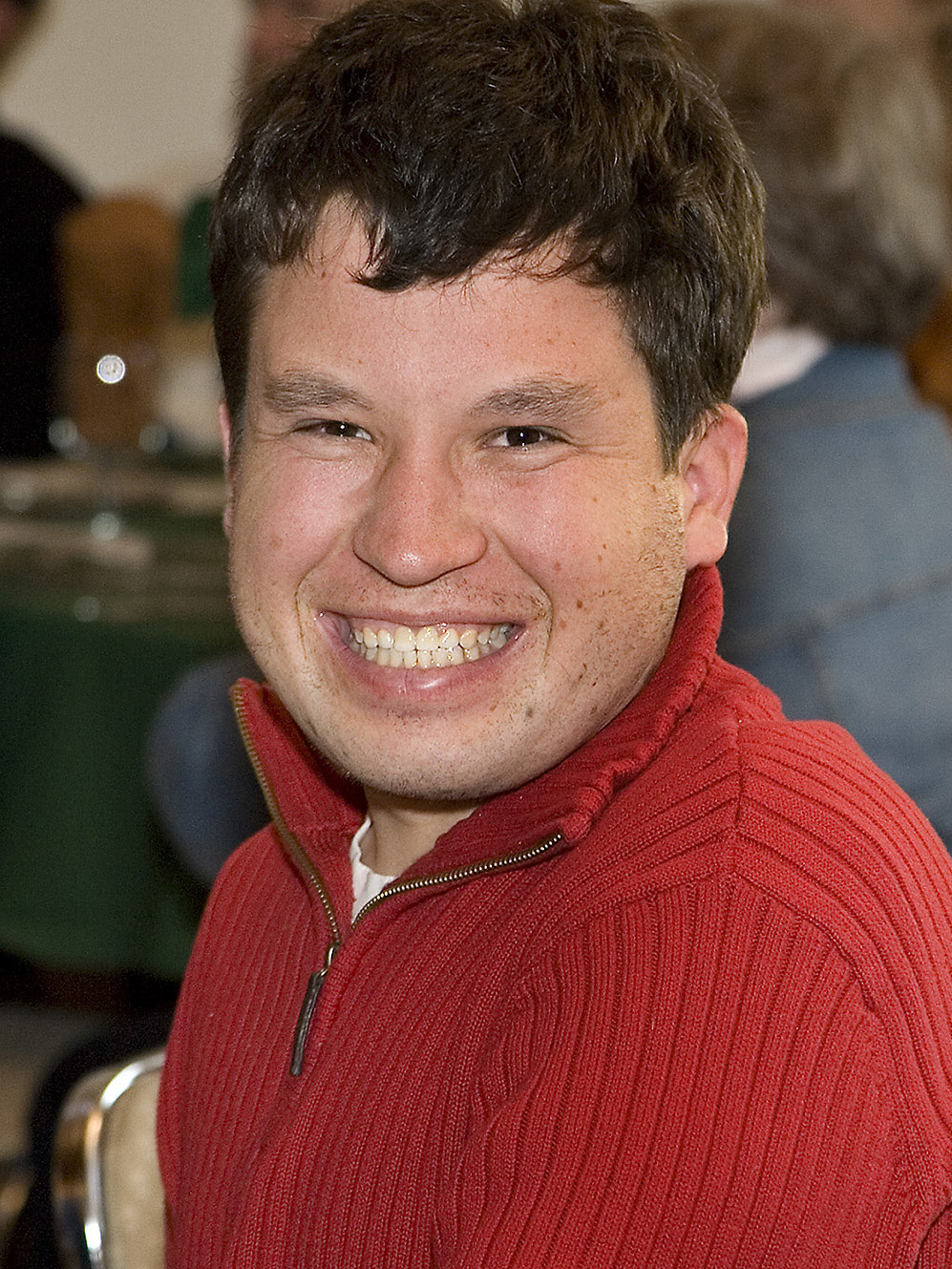Intellectually Disabled Student Wins Dorm Suit

Micah Fialka-Feldman attends Oakland University, one of many schools and community colleges that are setting up programs for students with Down syndrome. Courtesy Micah Fialka-Feldman hide caption

Micah Fialka-Feldman attends Oakland University, one of many schools and community colleges that are setting up programs for students with Down syndrome.
Courtesy Micah Fialka-FeldmanHere's one reason Micah Fialka-Feldman wants to live on his college campus, instead of remaining at home with his parents: To get to college in the morning, he takes the public bus near his home, then transfers to a second bus. The trip takes about two hours.
Fialka-Feldman, 24, attends classes at Oakland University, as part of a program for students like him, with intellectual disabilities. The campus is about 20 miles from where he lives with his parents in Huntington Woods, Mich.
A few years ago, Fialka-Feldman helped his younger sister Emma move into her dorm room when she went off to college at Mount Holyoke. It gave him another reason to want to live on campus: He thought he was missing out on an important part of college life. But his school said because he was in a special program and not a full-time student, he couldn't live on campus.
So Micah sued.
Early yesterday morning, his cell phone rang. It was his lawyer with the news: He had won. "I'm happy and I'm proud," say Fialka-Feldman.
A U.S. District Court judge in Michigan ruled that Oakland University had discriminated against Fialka-Feldman. The new school term starts Tuesday. And Fialka-Feldman says he hopes to move into his new dorm room by Sunday. He's got his computer, his radio and his bedding ready. He's got the posters he wants to put on the wall, including ones with quotes from civil rights leaders. One says: "A community that excludes one member is not a community at all."
To live on campus, he says, "means I would have the full college life and ... I could go to Friday night things in the dorm, like Friday night activities like a film night or like a basketball game and going out with friends."
His father, Rich Feldman, adds: "The judge's decision is a wonderful victory for Micah's dream to live in the dorm and a victory for so many other students and folks with cognitive disabilities. Now it's their right to be fully included in the college dormitory experience."
A spokesman for the university said officials there have not had time to evaluate the decision. The school can appeal.
It's pretty common these days for kids with intellectual disabilities like Down syndrome to go to their neighborhood schools and to be mainstreamed with all the other kids. And when these disabled students finish high school, they often want to go to college. In recent years, scores of community colleges and universities have opened special programs and invited students with intellectual disabilities to enroll. Oakland University has been a pioneer in opening up to these students. But the colleges can't always keep up with the rising expectations of disabled students and their parents.
Fialka-Feldman takes regular classes, and students act as tutors to help him follow along in class and keep up with his homework.
He has taken classes at Oakland since 2003 and the new term will be his last on campus. "I'm taking a class on public speaking. And a class on persuasion," he says.
He's already been pretty good at persuasion. In the course of fighting this case, he has spoken twice to the school's board of trustees, and he pressed his case in court. The university's study government voted to support Fialka-Feldman's right to live on campus, and the student body president, Kristin Dayag, was at his side at his court hearing earlier this month.
"Micah has really found his voice," says his mother, Janice Fialka. She remembers when Micah was 2 or 3, and still didn't speak. "I remember vividly asking the speech therapist, do you think that Micah will ever talk. And she hesitated. And that hesitation, which was probably only four seconds, felt like a lifetime," says Fialka, a social worker who now is a speaker on disability issues. "And basically she was saying, 'We don't know.' And now he's speaking in front of all kinds of people. So this is quite a journey of surprise, and the importance of believing that every person has a gift and should be supported in their dreams."
A generation ago, parents couldn't dream for their kids with disabilities. Before the 1975 special education law, public schools weren't even required to teach them — and about 1 million then didn't get any education at all.
Even today, lots of these kids aren't capable of going to college — and for many of them the future remains bleak.
But Paul Marchand, with the advocacy group The Arc, says parents now have higher expectations. "Parents want the best for their kids. They want their kids to get a job; they want their kids to be as independent as possible. They want society to accept them. They want their kids to be as typical as all the other kids of their age, including going to a college."
Last year, Congress passed legislation that for the first time makes it possible for people with intellectual disabilities to get federal college loans — even if they're not in a full-time program.
